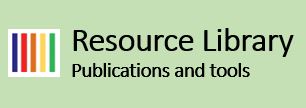IRM Coalition Model Mali: An organizational model that puts users at the heart of the dialogue for integrated risk management
Abstract:
A well-founded model!
With an estimated population, in 2016, of 1,930,290 inhabitants, of which 50.1% are women, the circles of Bankass, Djenné and Mopti (in the region of Mopti) and Kayes (region of Kayes) in Mali were characterized by an abundance of 'associations / grassroots community organizations (CBOs) most often in the same sector without a real connection between them. This situation led to a certain dispersion and confusion among decision-makers who were approached by several entities with the same concerns but asked in different ways and by different interlocutors.
On the other hand, there were diverging interests within the same socio-professional category and between different categories (fishermen, breeders, farmers and loggers); which is synonymous with high risk of conflict.
Question: why not sit down around a table to discuss how to federate efforts and converge interests towards a common ideal, starting from the principle that "walking alone in a fight is not productive", but, that "united, we move forward effectively"? This is the conviction that motivated the populations of the Sourou basins (Bankass circle), the Inner Niger Delta (Mopti, Youwarou and Djenné circles), and the Senegal River (Kayes circle) to engage in in-depth reflection on the best way to organize for more effective results with the support of PfR. These reflections led to the coalition model of stake in the respective zones. Thus, 701 formal and non-formal CBOs came together to create 130 Unions including 85 in the region of Mopti and 45 in the region of Kayes.
Speaker(s):
- Hosted by Mr Ibrahima Fofana, PfR Program Manager of Wetlands International
Time Slot: 14:15 - 14:30 CET (November 11)
Language: French (with English translation available)
Programmes
- Dialogue and Dissent Strengthening the capacity of civil society to engage in dialogues with stakeholders for improved disaster risk reduction policies, practices, and investments.
Read more - Up-scaling Eco-DRR Increasing communities resilience and reducing disaster risks through ecosystem-based solutions.
Read more





